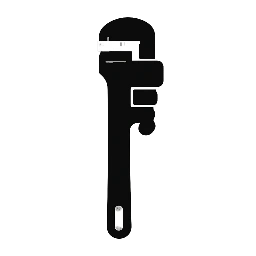Clean, safe, and great-tasting water flowing from every tap in your home isn’t a luxury—it’s a foundation for a healthier lifestyle. From showering without the harsh effects of chlorine on your skin and hair to cooking and drinking water free from contaminants, the benefits are clear. But the big question on everyone’s mind is: How much does a whole-house water filtration system cost?
The answer isn’t a single number. The price can vary significantly based on the type of system, the size of your home, and the specific water quality issues you’re trying to solve. In this comprehensive guide, we’ll break down all the factors that influence the final price tag, so you can make an informed investment in your home’s water quality.
Breaking Down the Costs: System Types and Price Ranges
The first step in understanding the whole home water filter price is to identify the type of system that best suits your needs. Different technologies target different contaminants.
1. Activated Carbon Filtration Systems
These are the most common and generally most affordable options for improving the general taste and odor of city water. They are excellent at removing chlorine, sediment, pesticides, and volatile organic compounds (VOCs).
- System Cost: $400−$2,500
- Best For: Homes on municipal water supplies looking to remove chlorine and improve taste and smell.
2. Water Softeners (Ion Exchange Systems)
If you struggle with hard water—evidenced by mineral buildup on fixtures, soap scum, and spotty dishes—a water softener is what you need. These systems use an ion exchange process to remove minerals like calcium and magnesium.
- System Cost: $600−$3,500
- Note: Many homeowners choose a combination system, pairing a water softener with a carbon filter for comprehensive treatment. The water softener installation cost will be a significant part of the total investment.
3. Reverse Osmosis (RO) Systems
For the highest level of purification, a whole-house reverse osmosis system is the ultimate solution. These systems force water through a semipermeable membrane, removing a vast majority of contaminants, including heavy metals (lead, arsenic), nitrates, sulfates, fluoride, and dissolved solids.
- System Cost: $1,500−$12,000+
- Best For: Homeowners wanting the purest water possible or those dealing with specific, difficult-to-remove contaminants. A reverse osmosis system cost is higher due to the complexity and effectiveness of the technology.
4. Sediment Filters
These are typically pre-filters used in conjunction with other systems. They capture larger particles like sand, silt, and rust, protecting more complex filtration systems from clogging.
- System Cost: $100−$500
5. Specialized Systems (e.g., for Well Water)
If your home uses well water, you may need a multi-stage system designed to tackle specific contaminants like iron, manganese, sulfur (rotten egg smell), and bacteria. A well water filtration system cost is often higher because it may require UV purifiers, oxidation filters, and sediment filters working in tandem.
- System Cost for Well Water: $1,000−$5,000+
Key Factors That Influence the Final Cost
Beyond the type of system, several other factors will determine your final bill.
- System Size & Capacity: The size of the system needed is determined by your household’s water usage and the number of bathrooms. A larger home with more occupants requires a system with a higher flow rate, which costs more.
- Brand and Quality: Like any appliance, brand reputation and the quality of materials play a significant role in pricing. Well-known brands may cost more upfront but often come with better warranties and reliability.
- Features: Advanced features like digital displays, self-cleaning cycles, or smartphone connectivity will increase the price.
Don’t Forget Installation Costs!
Unless you are a very experienced DIYer, professional installation is highly recommended to ensure your system works correctly and your warranty remains valid.
- Professional Installation Cost: $300−$2,000+
The cost of installation depends on the complexity of the job. A simple carbon filter installation on an easily accessible main water line will be on the lower end. In contrast, installing a multi-tank system with a new drain line and electrical work will be significantly more expensive. Always get a few quotes from licensed plumbers.
The Long-Term Investment: Maintenance and Filter Replacements
The initial purchase is not the only expense. To keep your system running efficiently, you must budget for ongoing maintenance.
- Water Filter Replacement Cost: This is the most common recurring cost.
- Sediment Pre-filters: $25−$75 (every 3-12 months)
- Carbon Tank Media: $200−$600 (every 5-10 years, depending on usage)
- RO Membranes: $100−$300 (every 2-5 years)
- Water Softener Salt: For softeners, you will need to add salt regularly. A typical household might spend $100−$250 per year on salt bags.
Is a Whole House Water Filter Worth It?
When you add up the system price, installation, and maintenance, it can seem like a hefty expense. However, consider the long-term savings and benefits:
- Protects Appliances: Prevents scale buildup in your dishwasher, washing machine, and water heater, extending their lifespan.
- Reduces Other Costs: No more buying bottled water.
- Health & Beauty: Softer skin and hair, and safer water for drinking and cooking.
- Increased Home Value: A high-quality water filtration system can be an attractive feature for potential buyers.
Ultimately, the cost of a whole-house water filtration system is an investment in your home and your family’s health. By understanding the different types, cost factors, and long-term expenses, you can choose a system that fits your budget and provides pure, clean water for years to come.


Leave a Reply